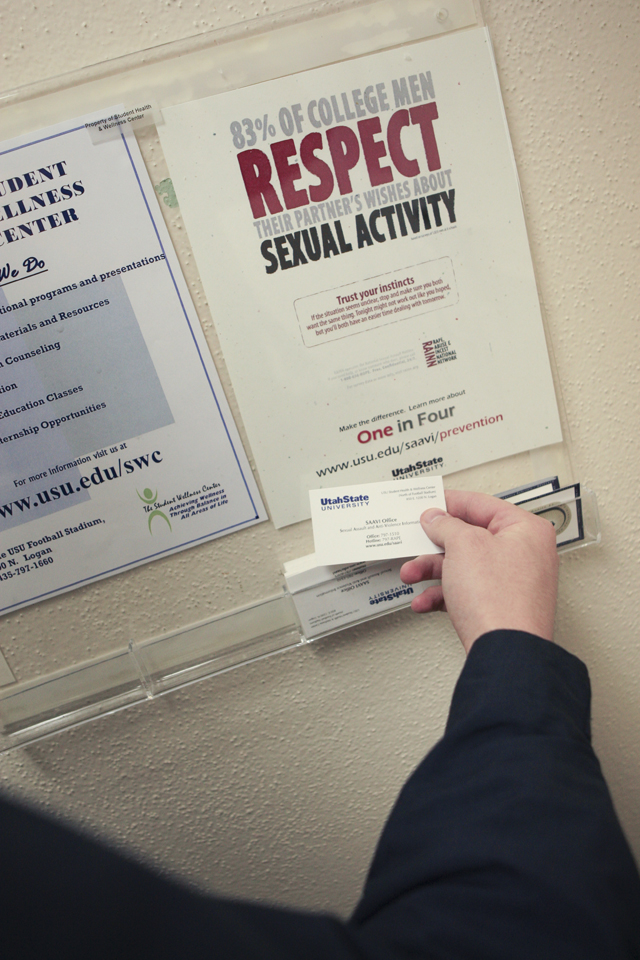SAAVI gives hope to survivors of abuse
Whether students want to accept it or not, violence and abuse is all around us and a serious problem. Not everyone will accept it, not everyone wants to acknowledge it. Luckily, there are individuals on campus who are willing to step up and take care of those that have been abused, and to make a difference not only in their lives but also in the community as a whole.
SAAVI, Sexual Assault and Anti-Violence Information, is a program at USU that is reaching out its hand to those that need help. Rachel Brighton, SAAVI coordinator, said SAAVI was staffed and running July of 2004. It is a program that not only helps those that have been abused, but also helps those that want to help their loved ones and helps educate the community of the seriousness of the issue of abuse. SAAVI is the only on-campus program in Utah that is dedicated to helping those who are and were victims and survivors of abuse.
“Quite often perpetrators have more than one victim,” she said. “If you are victimized, chances are that someone else is being victimized by the same person. By reporting, police gain a more accurate picture of the violence that is occurring in their communities, and they are in a better position to stop perpetrators from hurting others.”
This is a huge problem in the community, nation and the world. According to Fight the Blaze, Inc., a nonprofit organization trying to prevent child sexual abuse, 70 percent of abusers have one to nine victims, at least 20 percent have four to ten victims and a serial perpetrator can have more than 400 victims in his or her lifetime. Nearly 50 percent of victims are abused before the age of 12.
Many survivors believe that they are the ones to be blamed for what has happened to them, but this isn’t true. Brighton said the blame lies solely on the shoulders of the perpetrator.
“Certain impacts of sexual violence and domestic violence are felt immediately, but some impacts take a while to manifest themselves – especially for individuals who push aside their experiences and feelings,” Brighton said. “Just as a broken bone can heal on its own, so can an individual heal from the trauma of sexual assault and domestic violence. However, broken bones improperly set don’t heal as well and increase the chance of future injury; what seems to be fine now may prove to be a problem down the road.”
Brighton said though a victim may be coping now, as life stresses accumulate, impacts of trauma emerge and can be overwhelming.
“Healing from trauma takes time and requires effort; professionals help catalyze the healing process,” she said. “In the end, as human beings, we were never meant to handle painful experiences alone. We are social animals, we need others. No one should have to shoulder the aftermath of violence alone.”
Brighton said SAAVI is available to everyone on campus.
“We’re here if you’ve had something happen to you. We’re here if you want to help a friend, we’re here to help you make a difference. A violence-free campus is about all of us,” said Brighton.
For more information on how to contact SAAVI to get help or to volunteer to help, please visit the SAAVI Web site, at www.usu.edu/saavi.
–jill.bowers@aggiemail.usu.edu

